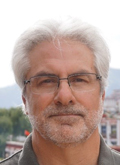President’s Column

Art Blume
Hello, everyone, my hopes that you and your families remain well.
The challenges of COVID-19 to us and to our people are immense. It is not a secret nor is it unexpected that the pandemic is disproportionately impacting the people that Division 45 serves and advocates for, and because of these realities, our professional activities in pedagogy, practice, and science have been seriously impacted. Existing health, income, and wealth disparities are complicating our work, making our collective people vulnerable to the physical threats of the virus. Prejudice and discrimination against our people make it more likely that we will be targeted with acts of hate or by national neglect that contributes to the invisibility of our people. Whether it is in our most densely populated urban neighborhoods, in detention, prisons, or other unprotected environments, or in our most rural and isolated reservations, our people are at the center of this pandemic and at the center of its response. And we are grievously aware that COVID-19 has harmed and continues to threaten our family members, friends, and colleagues.
We are also keenly aware that COVID-19 will impact psychological health and well-being for years to come. The disparities that pre-existed the virus will be enhanced by the negative consequences of the virus. Many of us will be addressing the psychological consequences of the pandemic for years to come—the depression and the anxiety, the trauma and the pain, and the short-term care and long-term rehabilitation. The realities may appear overwhelming on this side of the pandemic and certainly the challenges will be numerous going forward. With those possibilities in mind, we need to prepare ourselves physically, mentally, emotionally, and spiritually so we can continue to empower the communities in which we serve.
The pandemic has also been illuminating with regard to human psychology in several important ways. The COVID-19 has fully exposed shortcomings in society in ways that have rarely been seen and have been very hard to dispute. The fragility of the economic system, the supply chain, and the healthcare system has shocked many people who assumed otherwise. But perhaps the most powerful message of the pandemic has been the very strong reminder to independent-minded human beings that the world is an interdependent system in which we are only as strong as our most vulnerable member, and that we are collectively impacted. Human autonomy is a weakness and threat when facing an interdependent health threat. Boundaries have been meaningless during the pandemic, and have been exposed to be artificial constructs of the human mind. Reliance upon what is observable has been diminished by an insidious virus that travels almost invisibly to human perception and without warning in asymptomatic carriers. And perhaps surprisingly to some, even though humans have suffered immensely, the rest of the natural world has experienced recovery from diminished human activity. In other words, it has rarely been as clear as during the COVID-19 pandemic as to how inextricably linked psychological distress or psychological wellness is to the collective planetary system.
As an Indigenous American, I can also see opportunities in the challenges, as part of the harmony and balances in nature. I am hopeful that we will capitalize on the opportunities by addressing those numerous shortcomings that have been exposed in our social order during the pandemic. I am hopeful that we will learn from the lessons of COVID-19 on how to transform not only our dysfunctional social systems, to instill equity and justice and advance human psychological health and well-being, but also how humans can transform their activities in the natural world in order to ensure environmental justice, that will in turn promote global psychological wellness for all inhabitants of this interdependent planetary system. If healing from the pandemic is to be complete, we must take up the challenge of simultaneously transforming the social order and planetary systems that have created psychological vulnerability in the first place.
In a recent article, I was quoted about the pandemic response in this way: “Psychologists need to advocate, treat, and transform” (Andoh, 2020). In reality, that statement was only the first sentence of how I responded to the question. The rest of the quote, which was not printed in the article, was this: “Understand the trauma has a history that predates COVID-19. Our people have been traumatized by this society long before there was a pandemic, so they are in need of psychological advocates. COVID-19 is opportunistically preying upon the preexisting trauma that has impacted people of color and other marginalized groups, so the preexisting traumas need to be treated along with providing compassionate care for the consequences of COVID-19. Finally, when this pandemic is over, we need to transform the exposed weaknesses of our society into strengths that prevent subsequent traumas related to social disempowerment. Psychologists will have a major role in the transformation of this society toward psychological wellness in the years to come.”
I firmly believe that our best work awaits us in helping to prevent similar psychological tragedies of the future. When confronting the daunting challenges of the present circumstances, I am able to rejoice in the opportunities that await us on the other side of the pandemic. I hope that we will work together to ensure the fulfillment of the dream of a psychologically better post-COVID world.
Very respectfully,
Art
Reference
Andoh, E. (2020). How psychologists are helping America cope with the new normal. APA’s Six Things Psychologists are Talking About Newsletter.
Focus Spring 2020
- A Message to Graduating Students
- Division 45 Task Force on Covid-19 Anti-Asian Discrimination and Xenophobia
- Graduate Student Representative Column
- I Can’t Breathe: Resuscitating Black America
- In Memory of Jean Lau Chin, Ed.D.: A Champion for Diversity, Inclusiveness, and Social Justice
- President-Elect Column: Disease Threat, Racism, and Immigration
- President’s Column
- Report of Chair of the Council of Past Presidents
- Student Editor Column